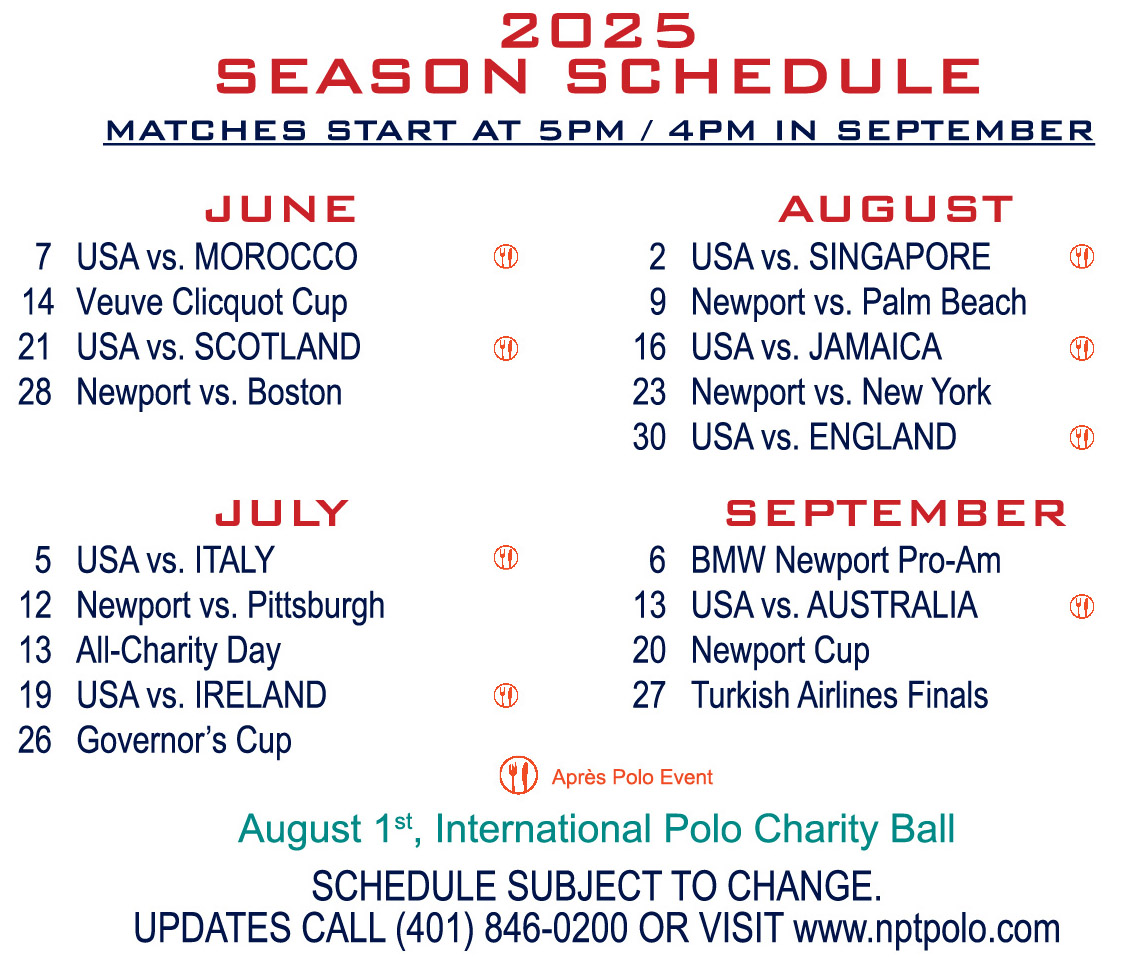
Box Office opens at 10AM on Saturday, Feb 1.
Buy Tickets, get a Season Pass, or Book a Polo Party!
From perennial favorites like Ireland and Jamaica to a long-awaited rematch against Scotland, 2025 promises a season packed with excitement and steeped in tradition. Join us at historic Glen Farm polo grounds as we welcome rivals from across the globe.

Friday, Jan 31, 2025
Thursday, Jan 30, 2025
Wednesday, Jan 29, 2025
Monday, Jan 20, 2025
Wednesday, Jan 8, 2025
Friday, Jan 3, 2025
Friday, Aug 1, 2025
Posted: December 31, 2024
Posted: December 30, 2024
Posted: December 28, 2024
Posted: December 9, 2024
Posted: December 6, 2024
Posted: December 2, 2024
Posted: November 25, 2024
Posted: November 20, 2024